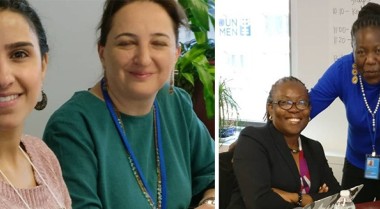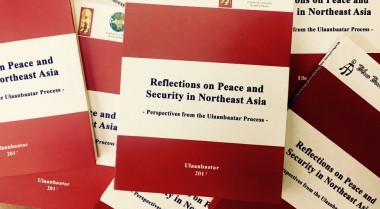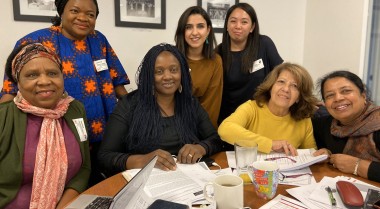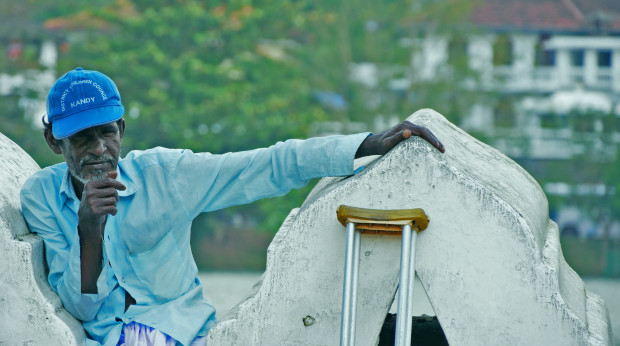Celebrating Women, Peace and Security at 21: Time to Invest in Local Women Peacebuilders
Before the COVID-19 pandemic, the Annual Open Debate on Women Peace and Security at the UN Security Council was a rallying point for our Gender Experts. Months of preparation would lead to local women peacebuilders from around the world gathering in New York in the last days of October to share their lived experiences on how they respond to crises, how they act as first-responders, and how they build peace in their communities. They would persistently advocate for greater support and the full and meaningful inclusion of women in peace and security processes at all levels. They would do this every year, over and over again. As COVID-19 still restricts international travel and civil society organisations have not regained access to the UN, our Gender Experts’ engagement this year remained virtual. However, this did not stop us. On the contrary, we closely followed the discussions on Women, Peace and Security Agenda online. This is our reflection of it.
Championing the Full and Meaningful Inclusion of Women in Peace and Security: The Origins
The Women, Peace and Security Agenda, also known as the WPS Agenda, stems from the landmark United Nations Security Council Resolution 1325 on Women, Peace and Security. Resolution 1325 is often explained by its four pillars: first, the prevention of conflict and violence; second, the participation of women in peace and security processes, particularly at decision making; third, the protection of women and girls; and lastly, advancing relief and recovery measures to include the needs of women and girls. Since the year 2000, nine subsequent resolutions have been adopted, forming together the Women, Peace and Security (WPS) Agenda.
At GPPAC, we are deeply committed to the WPS agenda through championing gender-transformative conflict prevention. In practice, this means that our Gender Experts work to address the gendered dynamics of conflict through combining gender and conflict analysis and establishing regional platforms such as the Network of South Caucasus Women Mediators. In addition, our gender experts in the Pacific and Southern Africa engage with traditional and male leaders to prevent sexual and gender-based violence, and to push for women’s participation in the decision-making.
Further, our gender experts develop effective strategies for gender transformative peacebuilding to ensure long-term and impactful change. First and foremost, our gender experts are peacebuilders. They push to be represented in peace and security processes to ensure the protection of both human security and human rights of women and girls in situations of violence and war. They are also first responders when crises and conflicts emerge.
With so much commitment to implementing the WPS Agenda on the ground, it goes without saying that we followed the Open Debate with great curiosity.
Investing in Women in Peacekeeping and Peacebuilding
The focus of this year’s Open Debate was on “Investing in Women in Peacekeeping and Peacebuilding”. In his opening remarks, the UN Secretary-General António Guterres stated that the world is moving backward regarding women’s rights. He urged the UN Security Council to build better partnerships with local women peacebuilders to help protect women human rights defenders and prioritise the full, equal, and meaningful participation of women peacebuilders. Sima Bahous spoke for the first time as the new Executive Director of UN Women. She highlighted the need for better financing of the Women, Peace and Security agenda by recommending that rising military spendings should instead be used to increase human security and support of women’s organisations. A civil society representative, Celia Umenza Velasco, an Indigenous leader from Colombia, spoke on behalf of the NGO working group on WPS. In her statement, Ms Velasco drew attention to the threat and violence indigenous human rights defenders face in Columbia. The Open Debate was marked by calls for better protection of women activists as the violence against women leaders has been increasing over the last years and the need to increase the funding of the WPS agenda. As Sima Bahous said in her remarks: “We cannot expect women’s organizations to perform miracles if they do not have enough funds to keep their lights on and their leaders are under constant threat”.
Pushing for Feminist Solutions for Impactful Financing for Peacebuilding
After this year's anniversary of resolution 1325 on Women, Peace and Security has passed, it is critical not to lose sight of the commitments and recommendations that have been made for increasing investments in women peacebuilders’ work on the one hand and the protection of their security and human rights on the other. In the months to come, it is essential to continue critical in-depth reflections on the current state of financing for peacebuilders while we ensure to put gender and inclusion of peacebuilders at the centre of that discussion. Financing for women peacebuilders should not only be in the spotlight during the October anniversary of the WPS agenda, while it remains a footnote in the main conversations. With the High-Level Meeting on Financing for Peacebuilding announced for early 2022, the time is now to push for feminist solutions for impactful peacebuilding.
This is why we have joined forces with the Global Network of Women Peacebuilders (GNWP), the International Civil Society Action Network (ICAN), Kvinna till Kvinna, and UN Women, to host a virtual high-level roundtable discussion: “Feminist Solutions for Impactful Financing for Peacebuilding” on November 8, 2-3:30 pm CET. Local women peacebuilders, representatives of the UN, Member States, and civil society, will partake in the discussion. The objective of the roundtable is to highlight the barriers to sustainable funding experienced by local women peacebuilders, share existing good practices from peacebuilding stakeholders and propose further solutions that can support local women peacebuilding work in a meaningful and effective way. You can register here.



